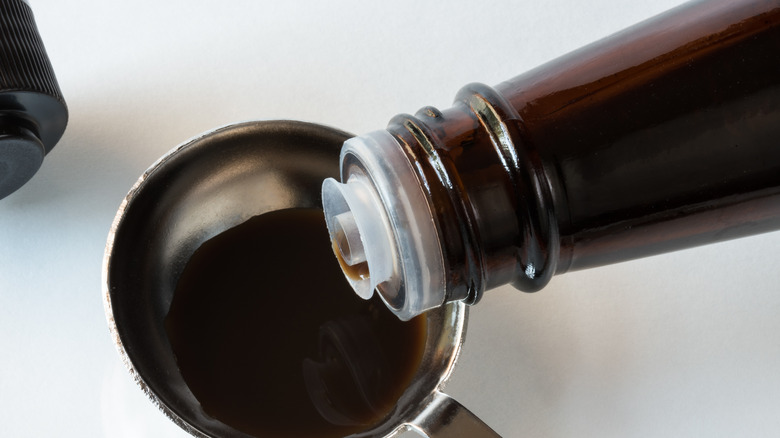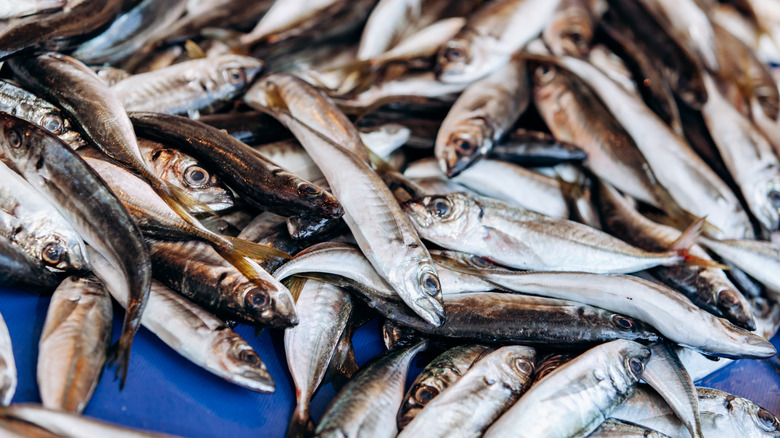The Ingredient You'd Be Surprised Is In Your Worcestershire Sauce
Worcestershire sauce is one of those ubiquitous ingredients you always have in your refrigerator or tucked away on a pantry shelf. A product of England, this tangy sauce is named for the city from which its chemist creators, John Lea and William Perrins, hail. Once these gentlemen perfected their now-famous product, they bottled it and soon enough it found its way to the United States.
Today, we use it in marinades for meats. We add it to barbecue sauces, soups, chili, cocktail sauces, salad dressings, and even our favorite brunch-style Bloody Mary. Worcestershire sauce definitely enhances the flavor of any dish. And while there are many brands that make this savory sauce, Lea & Perrins is still the gold standard.
It's probably fair to say that most people have no idea what Worcestershire sauce is actually made from. And while ignorance can be bliss, we decided to take a hard look at this sauce's ingredients and share. But be forewarned, you might not like what you read. In fact, there's one ingredient in this sauce that might not only surprise you, but might make your face turn green if you have an aversion to creatures that live in the sea.
Worcestershire sauce contains anchovies
As you look at the content label on the back of your bottle of Lea & Perrins, you will find distilled white vinegar kicking off the ingredients, followed by a laundry list of sweeteners and beautiful-smelling spices and seasonings that include molasses, garlic, onions, chili pepper extract, cloves, tamarind extract, and anchovies. Reading that probably makes you feel a little like Ross from "Friends" when he asked Rachael not to add anchovies to the pizza she was ordering, but she, instead, asked the pizza guy if he can chop up the fish and mix it into the sauce.
Why anchovies? It's a great question. Anchovies, those little silver and black colored fish that come in the little tins that you refuse to buy (let alone eat) apparently add the savory to this sauce. According to HuffPost, they are fermented in vinegar for up to 18 months before becoming an addition to the sauce. If it makes your stomach churn a little, we're with you. Still, perhaps it's best to conveniently forget this tidbit about Worcestershire sauce and just enjoy the rich flavor it can add to some of your favorite dishes.

